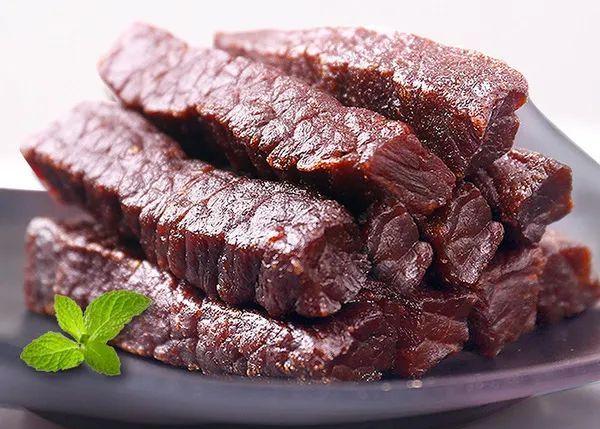
Retailer Wang Qin (pseudonym) signed a purchase and sale agreement with Li Kui (pseudonym), the head of a sales company, to purchase a "hand-torn beef jerky" from Li Kui for store sales. However, during the sale of Wang Qin, the local food and drug administration department found that the "hand-torn beef jerky" contained "pig-derived" ingredients after sampling inspection, and no "bovine-derived" ingredients were detected. After learning of the inspection conclusion, Wang Qin quickly removed the product, and contacted Li Kui to inform the sampling appraisal situation, and began to prepare for the follow-up return. Unexpectedly, when Wang Qin contacted again, Li Kui lost contact...
The legal net was restored without leakage, and the black-hearted merchants were finally arrested
Wang Qin immediately decided to call the police. Soon, Li Kui was arrested by public security officers. After arriving at the case, Li Kui's motive for selling fakes made people cry and laugh. It turned out that Li Kui had long known that the so-called "beef jerky" he wholesaled to Wang Qin was made of pork, but he still continued to sell it, just because he thought that "customers can't eat it, as long as they can continue to sell it if they don't do anything" and "beef jerky is very profitable, I just want to make money."
Trying to hide from the sky? "DNA" is the final word!
Li Kui's words probably speak to the voice of black-hearted merchants: because fake goods have high profits, they will not hesitate to take risks; because it is difficult to distinguish between true and false, the probability of "accidents" is small, so they can be bold. Is it really difficult to distinguish between real and fake jerky? The reality is that it will be difficult for them to do so.
After Li Kui arrived at the case, the relevant departments inspected the "beef jerky" involved in the case and found that it was all made of pork. In the face of modern technology, trying to use pork jerky to impersonate beef jerky is just the "wishful thinking" of black-hearted merchants.
Crossing the red line for greed and profit, criminal responsibility is the price
Article 140 of the Criminal Law stipulates that if a producer adulterates or adulterates a product, pretends to be genuine or shoddy, or passes off an unqualified product as a qualified product, the sales amount of more than 50,000 yuan constitutes the crime of selling counterfeit and shoddy products.
After a public prosecution initiated by the procuratorate, Li Kui was sentenced to one year and one month in prison for the crime of selling counterfeit and shoddy products. Li Kui paid his due price for his criminal behavior.
Prosecutor prompt
In the face of a variety of food products on the market, how can consumers avoid buying fake and shoddy products and prevent accidentally "entering the pit"?
✔ Be wary of low-priced foods
For food below the market price, it is necessary to pay attention to whether the production license is complete, whether the packaging is too simple, and whether there are signs of alteration of the production date. For food that is difficult to trace and has doubts, refuse to buy it to ensure "safety on the tip of the tongue".
✔ Awareness of rights protection should be possessed
When purchasing food, the purchase documents and vouchers should be retained. For the food purchased in bulk, in the case that some problems have been found, the rest of the food is not opened for the time being, properly stored, and left for subsequent sampling, inspection, identification, etc. Records of communications with merchants are also retained for subsequent processing.
✔ The reporting channel should be known
For food safety issues, both manufacturers and sellers are responsible entities. Consumers can report to the market supervision and management department where the manufacturer or seller is located. At the same time, illegal and criminal acts such as selling fake and shoddy products can be reported to the public security organs.
Editors: Xu Lei, Zhang Zechen
Contributed by: Shanghai Jing'an District People's Procuratorate